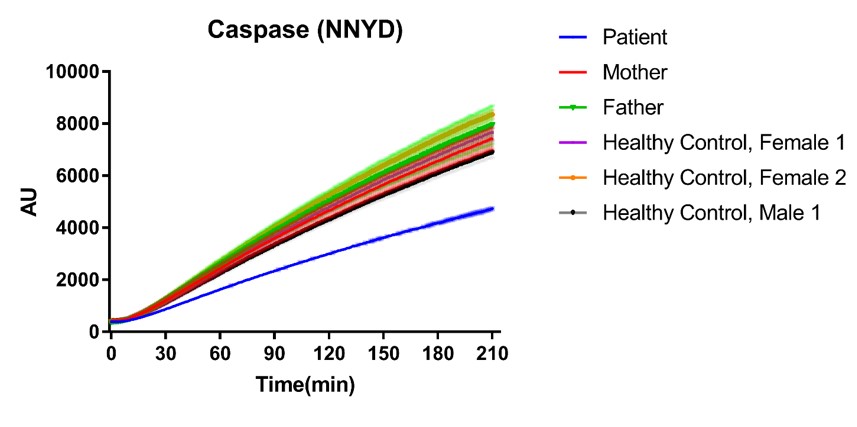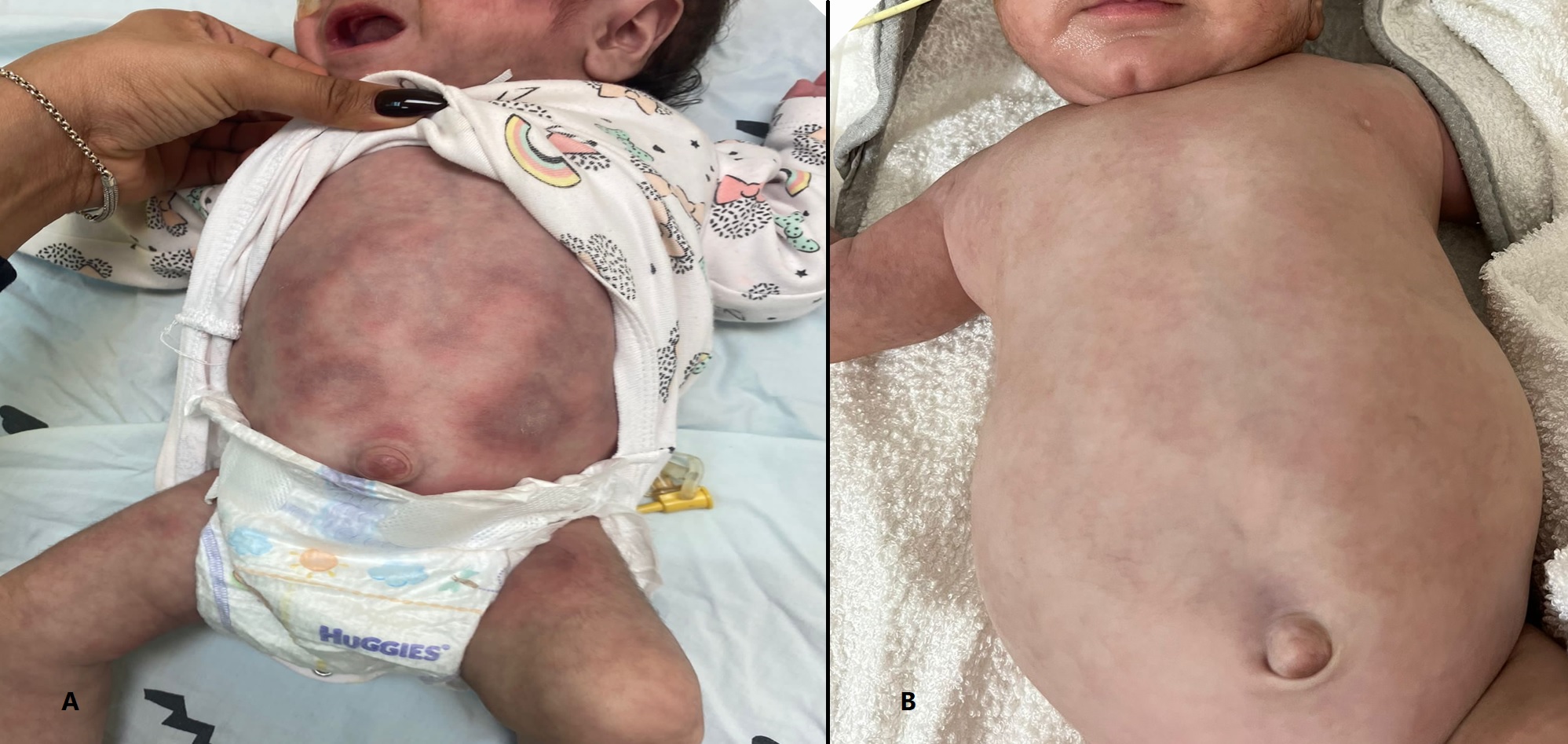Session Information
Session Type: Poster Session A
Session Time: 6:00PM-7:00PM
Background/Purpose: Interferonopathies are a recently recognized group of genetic syndromes associated with uncontrolled activation of interferon. PRAAS (proteasome-associated autoinflammatory syndromes) is an interferonopathy caused by proteasomal dysfunction. Clinical characteristics include early onset inflammation, nodular rashes, hepatosplenomegaly, myositis, panniculitis, lipodystrophy and basal ganglion calcifications. Our patient presented at age of 3 months with features strongly suggestive of PRAAS. Genetic testing revealed a novel proteasome variant classified as a variant of unknown significance (VUS). Functional testing of the proteasome was undertaken inorder to support the suspicion of PRAAS.
Methods: Samples of whole blood were taken from the patient, parents and 3 healthy controls. PBMC were lysed using activity preserving methods (active extraction). Samples were normalized using BCA enzymatic assay. Activity of the proteasomal subunits was measured using peptides specific to different subunits (caspase, chymotrypsin and trypsin acticity). In addition, interferon signature was obtained and whole exome sequencing was analyzed for the patient and her parents.
Results: Interferon signature was abnormally high, suggestive of an interferonopathy. A pilot analysis of proteasome activity showed a 50% reduction in the catalytic activity of proteasome subunit β1, indicating severe impairment of proteasomal activity, with compensatory hyper-activation of the immunoproteasome subunit β1i (figure 1). Whole exome sequencing revealed a novel heterozygous variant in a PSMB4, the gene that encodes for β7, a structural non –catalytic subunit of the proteasome classified as a variant of unknown significance (VUS). The apparent dysfunction of β1 and hyper activation of β1i suggested a proteasomal assembly dysfunction. Using the above findings, the patient commenced baricitinib treatment with remarkable clinical improvement (figure 2).
Conclusion: Proteasomal activity testing may serve as a useful tool for the diagnosis of PRASS in suspicious cases. Since JAK inhibitors may provide an adequate therapeutic response, it is of great importance to timely diagnose this disease in cases where the genetic results are equivocal.
 Reduced β1 proteasomal subunit activity as measured by caspase reaction, compared to healthy conrtols
Reduced β1 proteasomal subunit activity as measured by caspase reaction, compared to healthy conrtols
 The patient, before (A) and 2 weeks after (B) starting the treatment with JAK inhibitor (baricitinib)
The patient, before (A) and 2 weeks after (B) starting the treatment with JAK inhibitor (baricitinib)
To cite this abstract in AMA style:
Levinsky Y, Scheuerman O, Tal R, Amarilyo G, Harel L. Analysis of Proteasomal Activity – a Potential Diagnostic Tool for Proteasome-associated Autoinflammatory Syndromes (PRAAS) [abstract]. Arthritis Rheumatol. 2023; 75 (suppl 4). https://acrabstracts.org/abstract/analysis-of-proteasomal-activity-a-potential-diagnostic-tool-for-proteasome-associated-autoinflammatory-syndromes-praas/. Accessed .« Back to 2023 Pediatric Rheumatology Symposium
ACR Meeting Abstracts - https://acrabstracts.org/abstract/analysis-of-proteasomal-activity-a-potential-diagnostic-tool-for-proteasome-associated-autoinflammatory-syndromes-praas/
